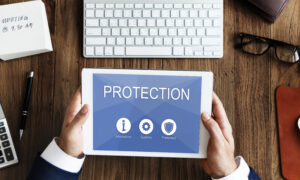As you’re reading this, there’s a pretty good chance that your family accesses the internet at home. Maybe it’s only yourself and your spouse, perhaps you have kids too, or your kids have their computers in their rooms. Whatever the case may be, it’s important to make sure that everyone has access to the internet safely if you want to keep them out of harm while still enjoying all that technology has to offer.
1) Decide if you want to use a public network
Public networks are generally riskier than private ones because you don’t control who else is using them. When you’re not sure, it’s probably best to use a private network.
Cybercriminals can attack anyone, so always be assertive when accessing information online. The same goes for your children—it’s important to teach them how to be safe online before they venture out on their own.
2) Change your password often
In recent years, several major corporations have been hacked and had their customers’ passwords stolen. In response, many of these companies have begun to push for users to change their passwords regularly.
While it may be annoying, you should make a habit of updating your password every few months—especially if you use it in multiple places, such as Facebook and Instagram. This way, if a website is compromised in a breach at some point, your password won’t be affected.
3) Use different passwords for every site
The easiest way to keep your personal information safe is to use different passwords for every site you visit. If someone gains access to one of your accounts, they can’t use that information to hack into other sites.
You can do yourself a big favor by setting up unique, complex passwords for all of your online accounts. And don’t let any of them be tied back to you—i.e., nothing that includes personal details like your name or birthday.
4) Consider using an ID Protection service
Family members are constantly using their home internet providers to access sensitive information. If you’re worried about protecting your identity while surfing, consider paying for an ID protection service. Whether it be credit monitoring or preventing harmful transactions, these services are relatively cheap and can help keep your family safe online. Of course, no one is perfectly safe when accessing information online, but you can minimize your risk by taking proactive measures like paying for an ID protection service.
5) Install security software on all of your devices
Make sure you have anti-virus software installed, particularly on any computers that are used for online banking. If your home internet provider offers it, consider installing a firewall as well or Download psiphon 3.177
Strong passwords are extremely important to use to keep your family safe while using the internet. Just remember to use different passwords for all of your accounts. Also, make sure they are tough to crack and have different characters used, Try to use trustworthy software for your password manager.
6) Make sure your router is up-to-date
The router is what routes your internet connection from your modem to all of your devices—and if it isn’t up-to-date, you could be vulnerable to malware, spyware, and other baddies. Fortunately, firmware updates are very easy to install with most modern routers.
7) Double check unfamiliar links
Be wary of unfamiliar links. If you see a link to an interesting site that no one in your family has heard of, type it into Google (or any search engine) to make sure it’s safe before clicking through. And make sure you don’t click on pop-ups or ads—they may lead to sites that aren’t safe for kids.
8) Set parental controls
Not every family has a home internet provider that offers parental controls, but many do—and if yours does, it’s an easy way to block inappropriate content. If you don’t have access to these controls, plenty of parental control apps can help.
Conclusion
Following the tips mentioned above will give you smoother and safer internet usage. Incorporate these to keep away from any cybercrime and make the best use of what the internet has to offer!



































